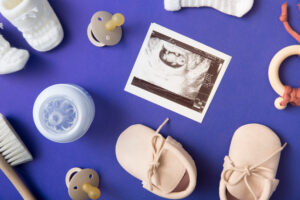A baby fever can be frightening for a parent. But when it’s time to call a doctor about your child’s temperature depends on their age and symptoms.
Baby fevers typically indicate an infection, such as a mild viral cold or ear infection, or a reaction to a vaccine. They can also be a sign of something more serious, such as a brain disorder or cancer.
Causes of Baby Fevers
Most babies have a fever from time to time, and it’s usually nothing to worry about. A fever is a natural response to an infection and stimulates white blood cells that fight germs. However, it’s important to understand how to tell if your baby has a fever and when to call the doctor.
The first sign that your baby might have a fever is if her forehead feels warm to the touch. This is because a fever is an increase in the body’s core temperature, which causes your baby to feel hotter than usual.
If your baby has the chills, she may also be shivering or sweating. You can also check her diapers to see if she is peeing more often than normal or if she’s having trouble with her bladder. A change in your baby’s behavior, like a lack of appetite or unusual crying, can also be a sign that she has a fever.
If your child is 3 to 6 months old and has a temperature of 102 degrees or higher, you should call her pediatrician. You should also avoid giving her acetaminophen (such as Tylenol) without her pediatrician’s approval, as it can cause Reye syndrome.
Symptoms of Baby Fevers
Symptoms of fever vary depending on the cause. If baby has a viral infection like an intestinal tract bug, cold or flu, fevers can be accompanied by sore throat and aches and pains. If the fever is caused by bacteria, it might be accompanied by symptoms such as an ear infection, urinary tract infection or bacterial pneumonia. In rare cases, a fever can be an indication of a more serious problem such as a autoimmune disorder or brain tumor but this is very rare.
Most babies will act a little cranky when they have a fever and might seem disinterested in playing or eating. The higher the fever, the more irritable and uninterested baby will be. Newborns may also have a hard time sleeping when they have a fever. Dressing baby in light clothing — one layer less than they normally wear — and giving them a cool bath or sponge to soak their skin are good ways to help lower their temperature.
Always check with your pediatrician before giving baby fever reducers such as Tylenol and be sure to tell them how much the baby weighs so they can give you the correct dosage. Never give a child under 3 months aspirin as it can lead to a deadly condition called Reye’s syndrome.
Treatment of Baby Fevers
In most cases, a fever in infants and babies can be managed at home with acetaminophen (such as Tylenol) or ibuprofen (such as Advil or Motrin). Before giving your child any fever-reducing medication, talk to your pediatrician. For infants and babies under 2 months, aspirin should not be used because it can cause a rare but serious illness called Reye syndrome.
Keep your baby hydrated by offering lots of liquids. Try to keep them comfortable by dressing them lightly, and keeping their environment at a lower temperature than normal. If your baby is very uncomfortable, you can try to calm them down by swaddling them or using a wearable blanket. They can also be soothed by a lukewarm sponge bath, but you should stop the bath if they start to shiver.
Newborns have immature internal thermostats that help them regulate their body temperatures, and they lack the insulating fat layer of older babies and children. This can make them more sensitive to changes in temperature. Therefore, they may develop a fever more easily when fighting an infection or illness.
A temporary increase in your baby’s temperature should not be a concern, especially if other symptoms are present. If the fever persists for more than 24 hours, you should call your doctor or nurse line. If you are unsure whether or not the fever is a problem, talk to your doctor during your baby’s six-month well-child visit.
Prevention of Baby Fevers
As any parent can tell you, it’s scary when your baby spikes a fever. The good news is that most babies’ fevers are not dangerous if they have the proper care at home.
First, use a rectal thermometer. These are the most accurate, and you don’t have to worry about mercury exposure. Avoid tympanic (ear) and temporal (forehead) thermometers, which are less accurate.
Newborns, especially, are more prone to a fever because their internal thermometer systems have not fully developed. They also lack the insulating fat layer that older children and adults have, which helps to regulate their internal temperature.
Dressing your baby or toddler in lighter clothes is a good idea when they have a fever, says Dr. Troy Madsen. However, don’t overdress them or cover them in blankets. This can trap their body heat and make the temperature rise even higher.
Regular fluid intake is important, too, says Madsen. “Feverish kids can lose a lot of fluids through sweat, so it’s essential that they drink enough to prevent dehydration,” he says. Babies should continue to get breast milk or formula, and babies over 6 months can have water or an oral rehydration solution like Pedialyte. In addition, a lukewarm washcloth placed against the head or neck can help relieve a headache.





